Getting certified for real estate photography flight offers numerous benefits. You'll gain essential knowledge of legal regulations and safety practices, enhancing your professional credibility. Certification can lead to better insurance coverage and lower premiums. You'll develop advanced flight techniques and equipment expertise, giving you a competitive edge. Your commitment to quality and ethical standards will build client trust, potentially increasing business opportunities. You'll also improve your image quality and flight planning efficiency. By staying current with industry trends and technologies, you'll position yourself as a top-tier professional in this dynamic field. The advantages extend far beyond what meets the eye.
Key Takeaways
- Certification ensures compliance with FAA regulations and local laws for commercial drone operations.
- Enhanced safety practices and emergency response training mitigate risks during photo shoots.
- Professional credibility increases, fostering client trust and long-term business relationships.
- Certification may lead to better insurance coverage and lower premiums for drone operations.
- Advanced flight techniques and equipment expertise result in higher-quality aerial photography.
Legal Compliance and Regulations
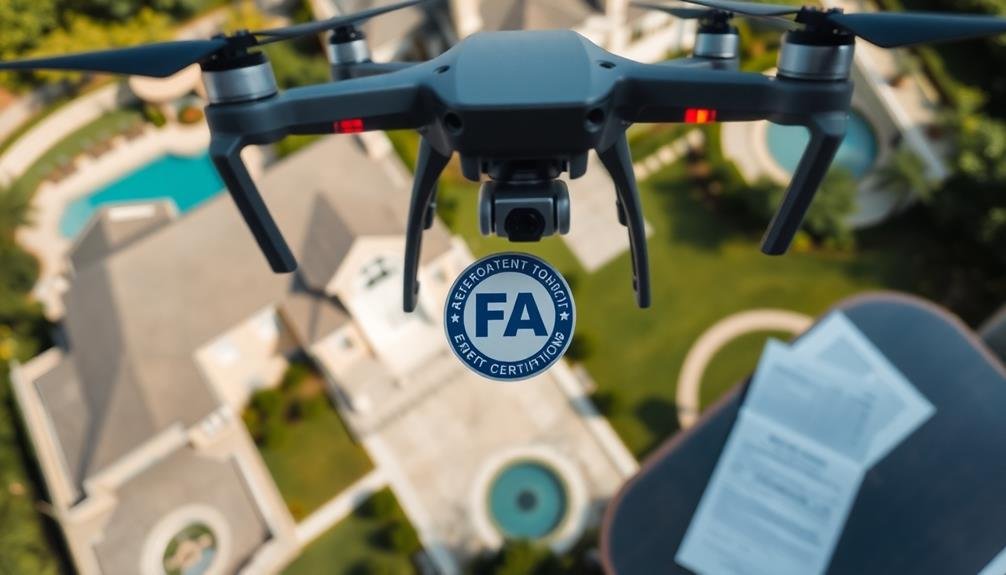
Maneuvering the legal landscape is essential for real estate photographers seeking certification. You'll need to familiarize yourself with federal, state, and local regulations governing drone usage for commercial purposes.
The Federal Aviation Administration (FAA) requires you to obtain a Remote Pilot Certificate, which involves passing an aeronautical knowledge test. You must also register your drone with the FAA and adhere to their guidelines for commercial operations.
State and local laws can vary considerably, so it's vital to research the specific requirements in your area. Some jurisdictions may require additional permits or impose restrictions on where and when you can fly.
You'll need to understand property rights and privacy laws to avoid potential legal issues when capturing aerial footage of real estate.
Insurance is another critical aspect of legal compliance. Many clients will require you to have liability insurance before hiring you for real estate photography.
Certification programs often cover these legal aspects, ensuring you're well-versed in the regulations and best practices for operating drones safely and legally in the real estate industry.
Enhanced Safety Practices
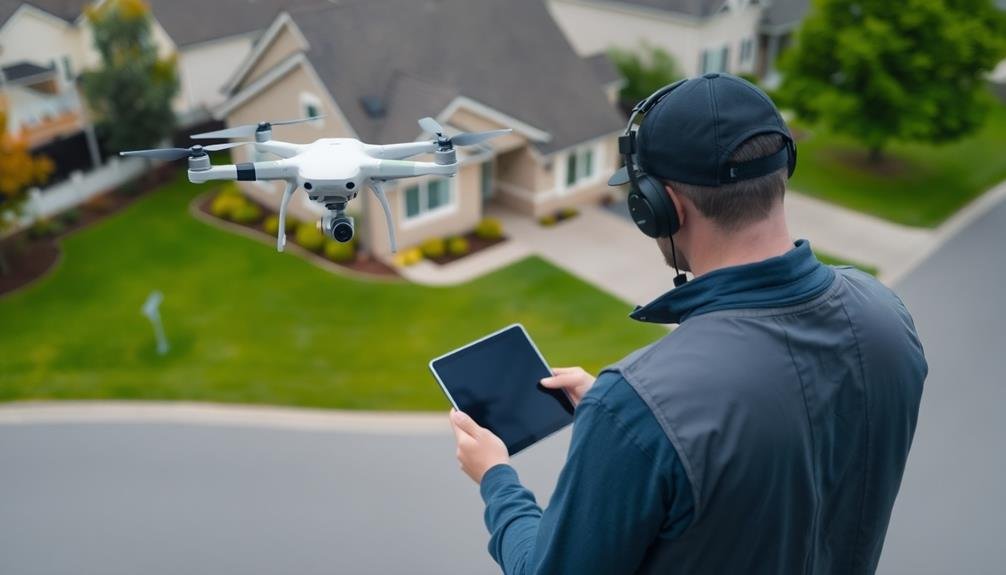
Safety is paramount in real estate photography, especially when using drones. Certification programs emphasize enhanced safety practices that go beyond basic regulations. You'll learn to conduct thorough pre-flight checks, assess weather conditions, and identify potential hazards in your shooting area. These skills help you mitigate risks and guarantee a safer operating environment.
Certified photographers are trained to handle emergency situations effectively. You'll develop quick decision-making skills and learn proper procedures for equipment malfunctions or unexpected obstacles. This knowledge not only protects you but also safeguards your clients' property and the public.
| Safety Aspect | Uncertified | Certified |
|---|---|---|
| Risk Assessment | Limited | Extensive |
| Emergency Response | Unprepared | Well-trained |
| Equipment Handling | Basic | Advanced |
| Public Safety | Minimal consideration | Top priority |
Professional Credibility

Certification instantly boosts your professional credibility in the real estate photography industry. When you're certified, you demonstrate to potential clients that you've invested time and effort to master the necessary skills and knowledge. This commitment sets you apart from amateur photographers and hobbyists, positioning you as a serious professional in the field.
Real estate agents and property owners are more likely to trust a certified photographer with their valuable listings. Your certification serves as a seal of approval, assuring clients that you understand the legal and ethical considerations specific to real estate photography. It also indicates that you're up-to-date with the latest industry standards and best practices.
Moreover, certification can lead to increased networking opportunities within the industry. You'll gain access to professional associations and groups, allowing you to connect with other certified photographers and potential clients.
These connections can result in referrals and collaborations, further enhancing your reputation and business prospects.
Insurance Benefits

A significant advantage of obtaining real estate photography certification is the potential for improved insurance benefits. When you're certified, insurance companies often view you as a lower-risk professional, which can lead to better coverage options and potentially lower premiums.
Many insurers offer specialized policies for certified real estate photographers, recognizing the unique risks associated with your work.
With certification, you'll likely have access to more extensive liability coverage. This can protect you from claims related to property damage, privacy issues, or copyright infringement that may arise during your shoots.
Some insurance providers even offer drone-specific coverage for certified operators, which is essential if you're using UAVs for aerial photography.
Additionally, certification may help you secure errors and omissions insurance more easily. This coverage protects you from claims of negligence or inadequate work, which is particularly important in the detail-oriented field of real estate photography.
Competitive Edge
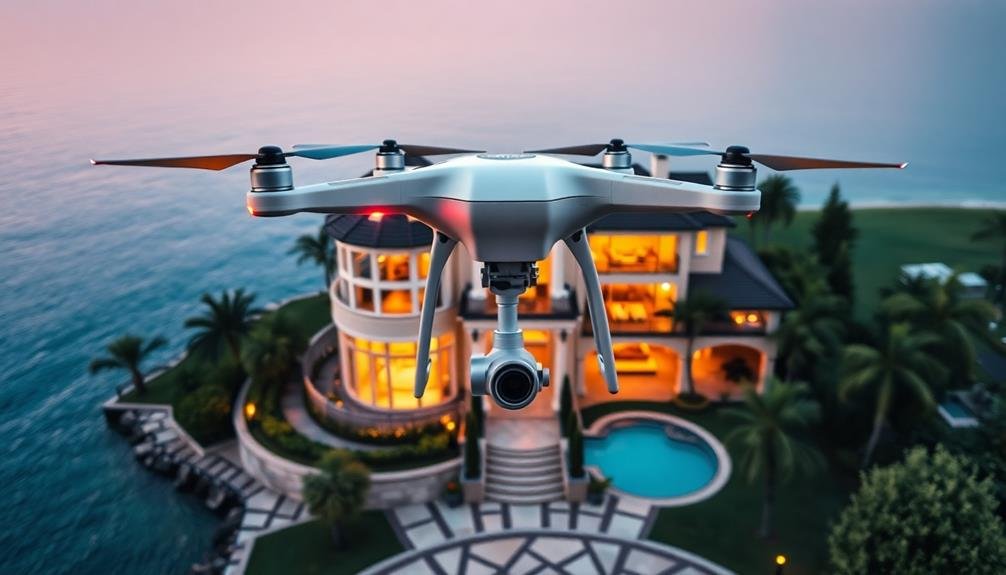
Beyond the insurance perks, real estate photography certification gives you a significant competitive edge in the market. It sets you apart from uncertified photographers, showcasing your commitment to professionalism and quality.
Clients will trust you more, knowing you've invested time and resources into honing your skills. This certification also demonstrates your expertise in specialized techniques and equipment, making you a go-to choice for high-end properties and discerning clients.
Your certification opens doors to exclusive networking opportunities and partnerships with real estate agencies, builders, and developers. You'll gain access to industry events, workshops, and resources that can further enhance your skills and expand your client base.
Furthermore, you can command higher rates for your services, as clients recognize the added value of working with a certified professional.
Here are three key ways certification boosts your competitive edge:
- Enhanced credibility and trust with clients
- Access to exclusive industry networks and resources
- Ability to charge premium rates for your services
Advanced Flight Techniques
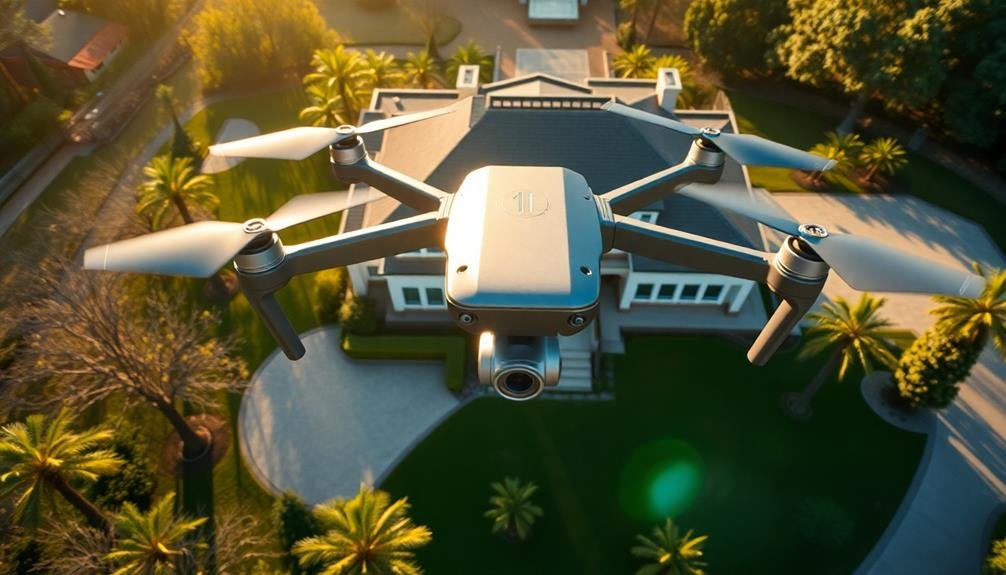
Mastering advanced flight techniques is essential for real estate photographers who use drones. You'll need to perfect smooth, controlled movements to capture stunning aerial shots of properties.
Start by practicing figure-eight patterns and orbits around buildings, maintaining a consistent altitude and speed. These maneuvers will help you showcase a property's surroundings and architectural features.
Learn to execute precise vertical movements for dramatic reveal shots, starting low and slowly ascending to disclose the property's full scope.
Master the art of flying backwards while keeping the property centered in your frame, creating a cinematic effect that draws viewers in. You'll also want to perfect your ability to fly sideways, capturing sweeping views of expansive properties or neighborhoods.
Practice flying in confined spaces and maneuvering around obstacles, as you'll often encounter trees, power lines, and other structures near properties.
Develop your skills in flying at different times of day and in various weather conditions to capture the best light and atmosphere for each property.
Equipment Handling Expertise
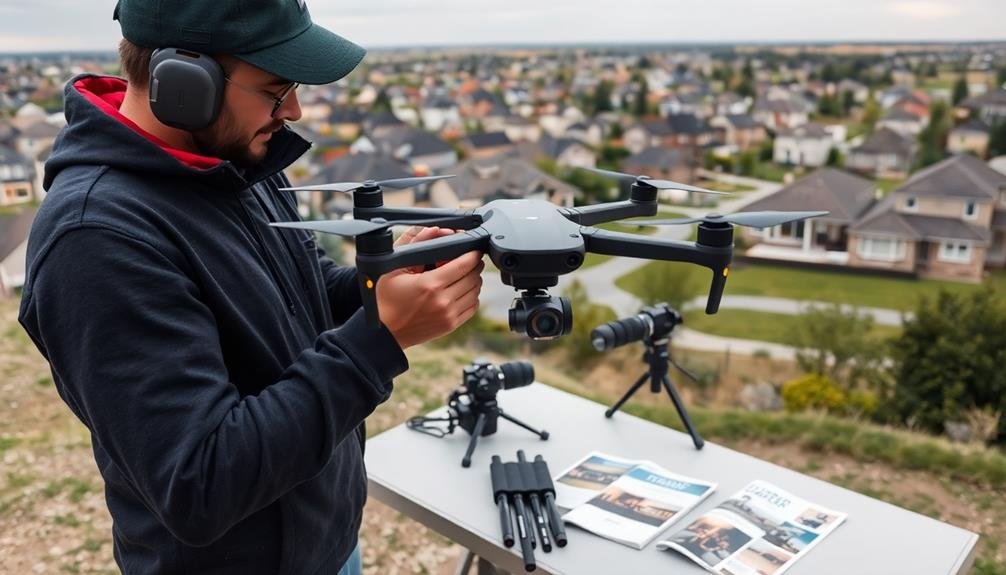
Proper equipment handling expertise is essential for real estate photographers to produce high-quality images consistently.
You'll need to master your camera, lenses, lighting equipment, and drones to capture stunning property shots. Understanding how to properly set up, maintain, and transport your gear will guarantee it stays in top condition and performs reliably on every shoot.
Developing proficiency with your equipment allows you to focus on composition and creativity rather than struggling with technical issues.
You'll be able to quickly adjust settings, switch lenses, and deploy lighting setups to adapt to changing conditions and client requests. This efficiency will help you complete shoots faster and take on more clients.
Here are three key areas to focus on for equipment handling expertise:
- Camera and lens maintenance routines
- Proper storage and transportation techniques
- Quick setup and breakdown procedures for various lighting scenarios
Client Trust and Confidence
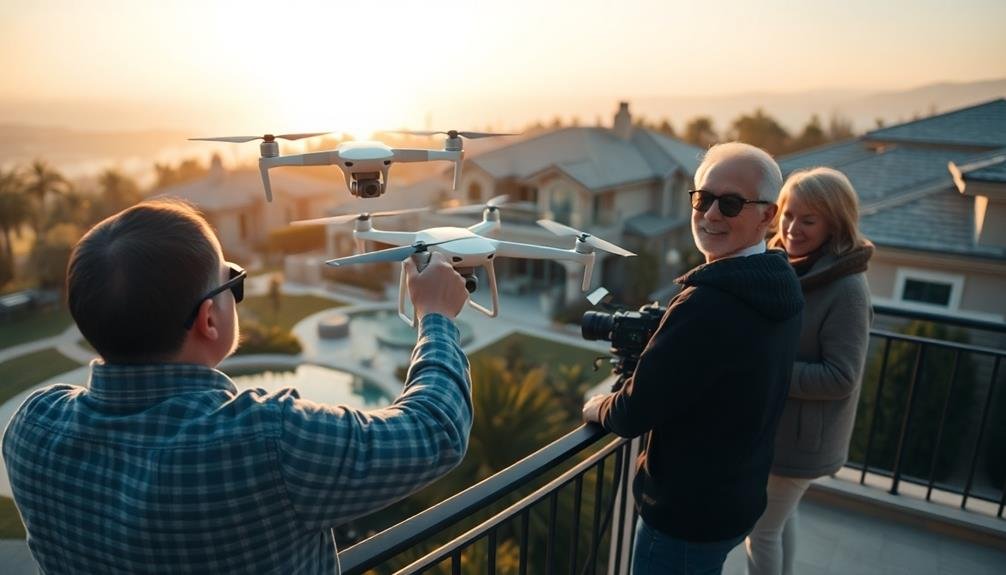
Client trust and confidence are cornerstones of a successful real estate photography business. When you're certified, you demonstrate to potential clients that you've invested time and effort into honing your skills. This commitment shows that you take your work seriously and are dedicated to providing high-quality results.
Certification also gives you a competitive edge in the market. Clients are more likely to choose a certified photographer over an uncertified one, as it provides assurance of your expertise and professionalism. You'll be able to command higher rates and attract more prestigious clients who value quality and reliability.
Moreover, certification often includes training in client communication and business practices. This knowledge helps you build stronger relationships with your clients, understand their needs better, and deliver results that exceed their expectations.
You'll learn how to manage client expectations, handle difficult situations, and maintain a professional demeanor throughout your interactions.
Industry-Specific Knowledge
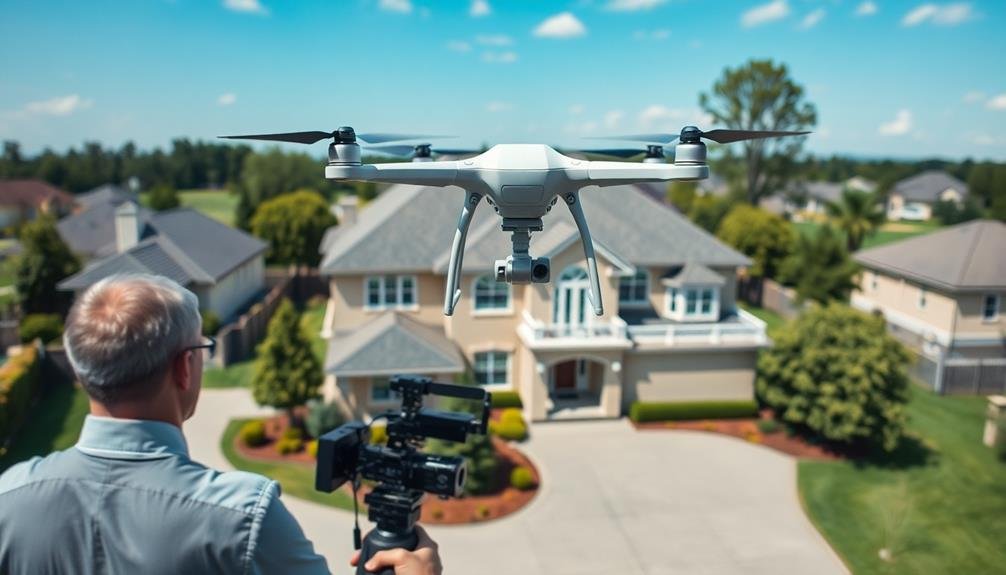
Real estate photography certification programs offer more than just technical skills; they provide valuable industry-specific knowledge. You'll gain insights into the real estate market, understanding what agents and homeowners are looking for in property photos. This knowledge helps you tailor your services to meet industry standards and exceed client expectations.
Certification courses often cover real estate terminology, legal considerations, and best practices specific to property photography. You'll learn about staging techniques, ideal times for shooting different types of properties, and how to highlight a home's best features. This industry-specific knowledge sets you apart from general photographers and positions you as a specialist in the field.
Here are three key benefits of gaining industry-specific knowledge through certification:
- Better communication with real estate professionals
- Ability to offer value-added services beyond basic photography
- Understanding of market trends and how they affect property presentation
Networking Opportunities

In addition to technical skills and industry knowledge, real estate photography certification programs often provide valuable networking opportunities.
You'll have the chance to connect with fellow photographers, industry professionals, and potential clients throughout your certification journey.
Many certification courses include group sessions, workshops, or online forums where you can interact with peers.
These connections can lead to collaborations, referrals, and shared insights about the industry.
You'll also likely gain access to a network of certified professionals, which can be invaluable for finding mentors or seeking advice on challenging projects.
Certification programs often partner with real estate agencies, property management companies, and other industry stakeholders.
This exposure can help you build relationships with potential clients and showcase your newly acquired skills.
Some programs even offer job boards or client-matching services exclusively for their certified members.
Improved Image Quality
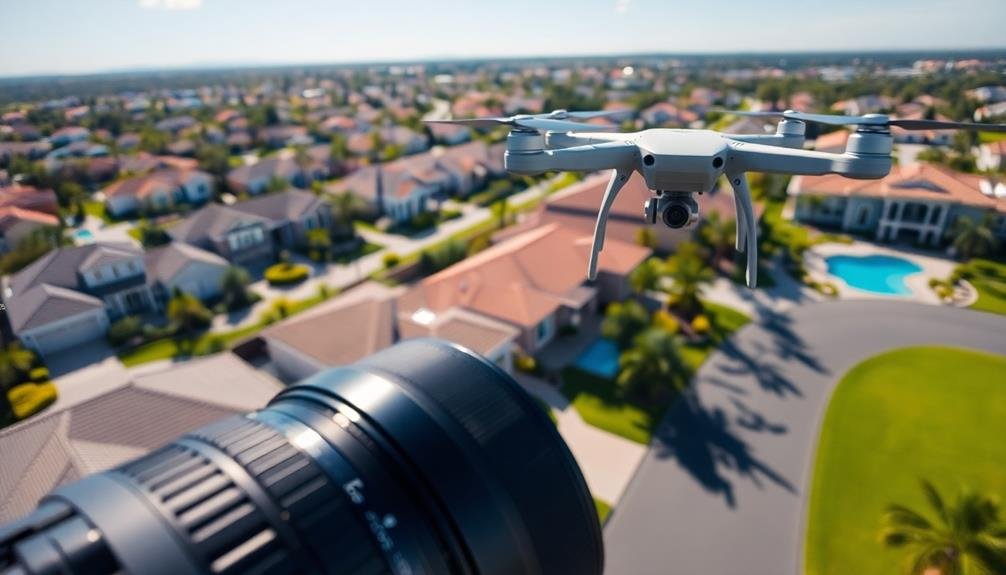
One of the primary benefits of real estate photography certification is the significant improvement in image quality you'll achieve. Through thorough training and hands-on experience, you'll learn advanced techniques to capture stunning, professional-grade images that showcase properties in their best light.
You'll master the art of composition, lighting, and post-processing, ensuring your photos stand out in a competitive market.
Certification programs teach you to:
- Use advanced camera settings and equipment effectively
- Manipulate natural and artificial light for ideal results
- Edit and enhance images using industry-standard software
With these skills, you'll be able to produce high-quality images that accurately represent properties and attract potential buyers.
You'll learn to highlight a home's best features while minimizing flaws, creating a visual narrative that sparks interest and encourages inquiries.
Real estate agents and property owners will appreciate the difference in your work, leading to more referrals and repeat business.
Efficient Flight Planning
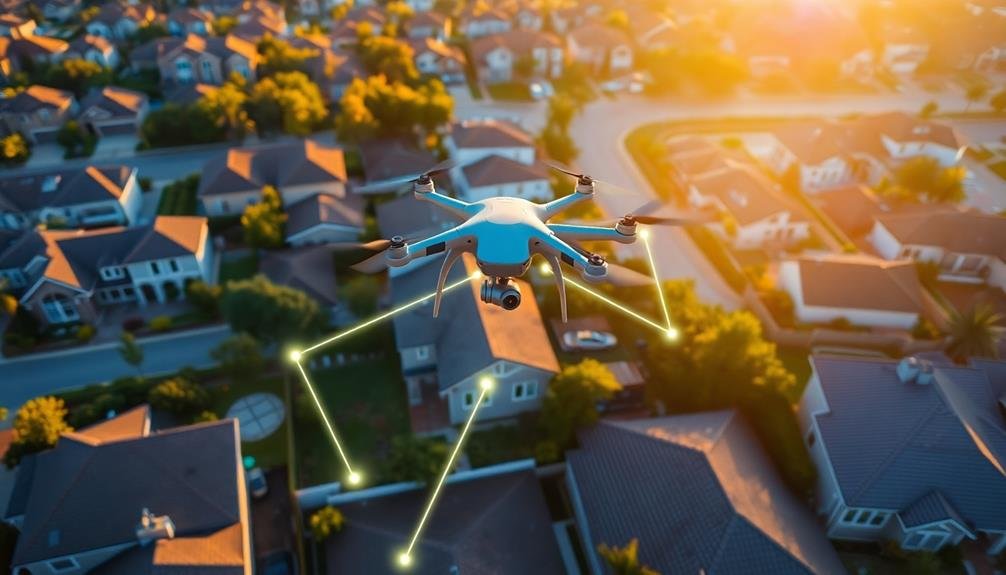
You'll learn to optimize drone flight paths for real estate photography, ensuring thorough property coverage with minimal wasted time.
Efficient route planning allows you to capture all necessary angles and features while conserving battery life and daylight hours.
You'll master techniques for maximizing your shoot's productivity, enabling you to photograph more properties in less time.
Optimizing Drone Flight Paths
How can you maximize the efficiency of your drone flights for real estate photography? Enhancing your flight paths is essential for capturing stunning aerial shots while saving time and battery life. You'll want to plan your routes carefully, considering the property's layout, key features, and potential obstacles.
Start by surveying the area and identifying the most important shots you need to capture. Then, map out a logical path that covers all these points with minimal backtracking. Consider the altitude changes required for different shots and group similar-height captures together to reduce unnecessary vertical movements.
To further enhance your drone flight paths:
- Use automated flight planning software to create precise routes and waypoints.
- Prioritize shots based on lighting conditions, starting with those that require ideal sunlight.
- Factor in battery life and plan for mid-flight battery swaps if necessary.
Maximizing Property Coverage Efficiently
Efficient flight planning is essential for maximizing property coverage in real estate drone photography. You'll want to map out your flight path before takeoff to guarantee you capture all necessary angles and features of the property.
Start by identifying key selling points and areas that need emphasis, such as unique architectural elements or landscaping features.
When planning your flight, consider the property's size, layout, and surrounding obstacles. Create a systematic approach, such as flying in a grid pattern or circular path, to cover the entire area without missing any spots.
Use waypoints to mark important locations and automate your flight path for consistency.
Don't forget to account for lighting conditions and shadows throughout the day. Plan your flights during prime lighting hours to showcase the property in its best light.
You'll also want to adjust your altitude for different shots, capturing both wide-angle views and detailed close-ups.
Time-Saving Route Planning
Three key strategies can considerably reduce your flight time and increase efficiency when planning your real estate drone photography routes.
First, prioritize your shots based on the property's most important features and the client's specific requests. This allows you to capture essential images early in the flight, ensuring you don't miss vital shots if time runs short.
Second, map out a logical flight path that minimizes backtracking and covers the property systematically. Consider factors like sun position, shadows, and potential obstacles to determine the best route.
To further streamline your drone photography process:
- Use pre-programmed flight patterns for standard shots, such as orbits or reveals
- Set up multiple battery stations to minimize downtime between flights
- Leverage automated flight planning apps to calculate the most efficient routes
Ethical Considerations
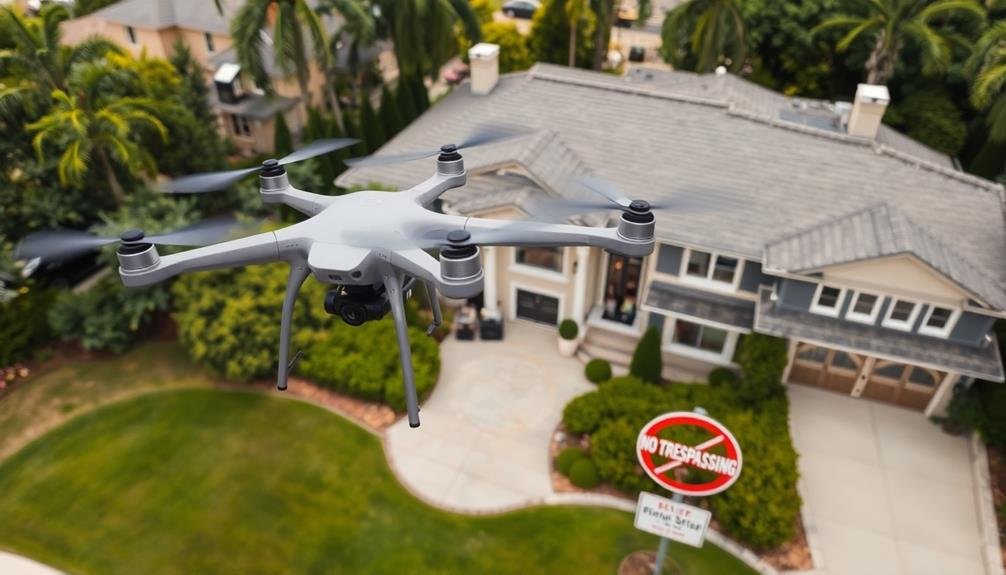
Throughout your career as a real estate photographer, you'll encounter various ethical dilemmas that require careful consideration. As a certified professional, you're expected to uphold high standards of integrity and respect for privacy.
Always obtain proper permissions before photographing properties, and be mindful of capturing neighboring homes or individuals unintentionally.
You must accurately represent properties in your images, avoiding deceptive editing techniques that misrepresent the actual condition or features of a home. This includes refraining from digitally altering structural elements or removing unsightly objects that are permanent fixtures.
Be transparent about any staging or temporary enhancements used during the shoot.
Respect client confidentiality by safeguarding sensitive information about properties and homeowners. Don't share or use images for personal gain without explicit permission.
When working with multiple clients, maintain professional boundaries and avoid conflicts of interest.
Consider the environmental impact of your work, especially when using drones. Follow local regulations and be mindful of wildlife and noise pollution.
Continued Education and Growth
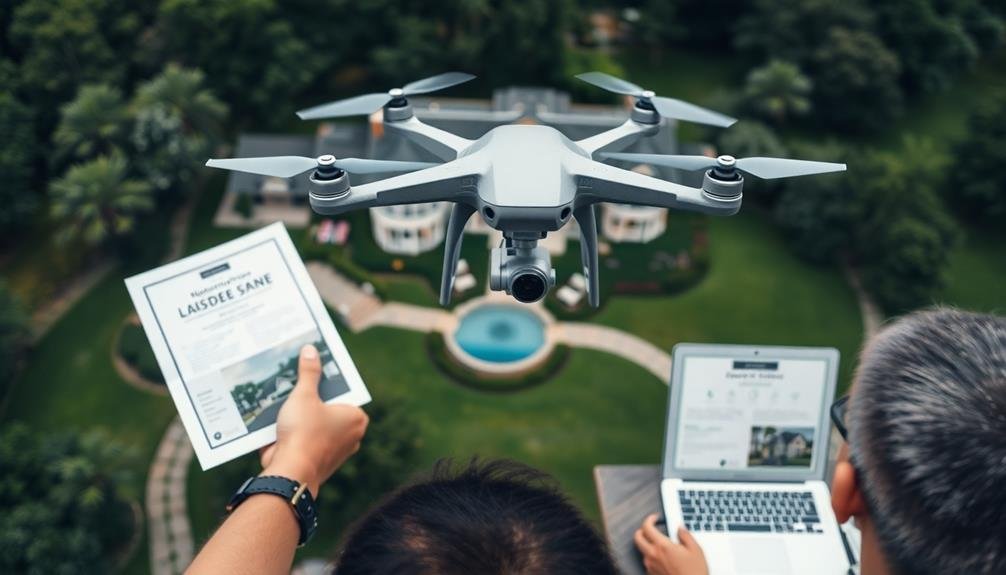
Maintaining ethical standards is just the beginning of your professional journey. As a certified real estate photographer, you'll need to commit to continuous learning and growth. The field of real estate photography is constantly evolving, with new technologies, techniques, and market demands emerging regularly. By staying up-to-date, you'll not only enhance your skills but also remain competitive in the industry.
To guarantee your continued education and growth, consider these key steps:
- Attend workshops and conferences focused on real estate photography
- Join professional associations and engage in networking opportunities
- Regularly practice and experiment with new techniques and equipment
Don't underestimate the value of ongoing education. It'll help you adapt to changing client expectations, master new software and editing tools, and stay informed about industry trends.
You'll also gain insights into emerging markets, such as virtual tours and drone photography. By consistently improving your skills and knowledge, you'll position yourself as a trusted expert in the field.
Frequently Asked Questions
How Long Does It Take to Complete a Real Estate Photography Flight Certification?
You'll typically complete your real estate photography flight certification in 2-4 weeks. It depends on your study pace and prior experience. You'll need to pass both written and practical exams to earn your certification.
Can I Use My Existing Drone for Certification, or Is Specific Equipment Required?
You can usually use your existing drone for certification if it meets the required specifications. However, you'll need to verify it has necessary features like GPS, obstacle avoidance, and a high-quality camera for real estate photography.
Are There Different Certification Levels for Residential Versus Commercial Real Estate Photography?
You'll find that certification requirements don't typically differ between residential and commercial real estate photography. However, you might need additional skills or equipment for larger commercial properties. It's best to check with your certification provider for specifics.
How Often Do I Need to Renew My Real Estate Photography Flight Certification?
You'll typically need to renew your real estate photography flight certification every two years. It's important to stay current with regulations and technology. Check with your certifying organization for specific renewal requirements and timelines.
Are There Age Restrictions for Obtaining a Real Estate Photography Flight Certification?
You'll need to be at least 16 years old to get a real estate photography flight certification. There's no upper age limit, but you must pass medical requirements and maintain physical fitness to operate drones safely.
In Summary
You've seen the many benefits of getting certified for real estate photography flight. It's not just about legal compliance; it's about becoming a safer, more professional, and more competitive drone pilot. With certification, you'll enhance your skills, gain credibility, and potentially save on insurance. You'll also be better equipped to handle ethical considerations and continue growing in your field. Don't miss out on these advantages – pursue certification and elevate your real estate photography career.
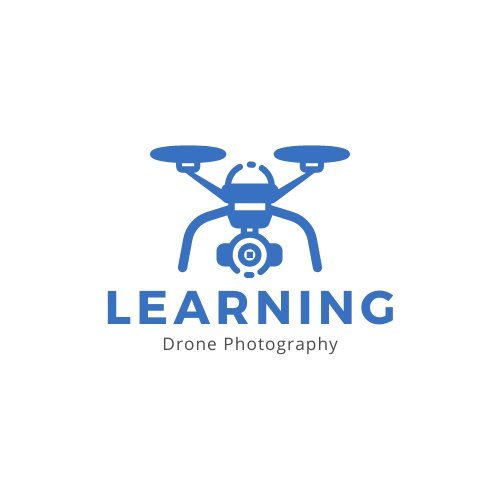
As educators and advocates for responsible drone use, we’re committed to sharing our knowledge and expertise with aspiring aerial photographers.
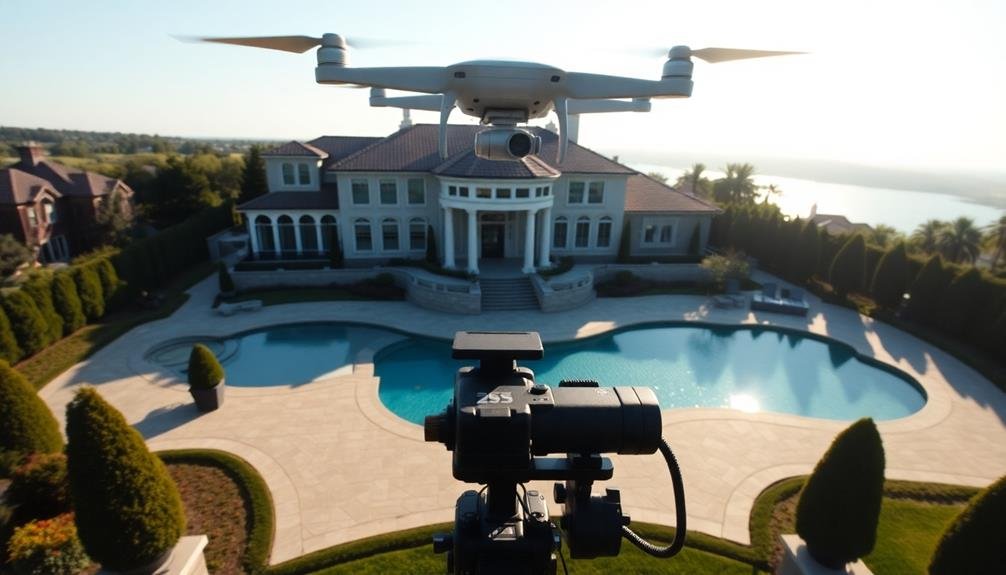
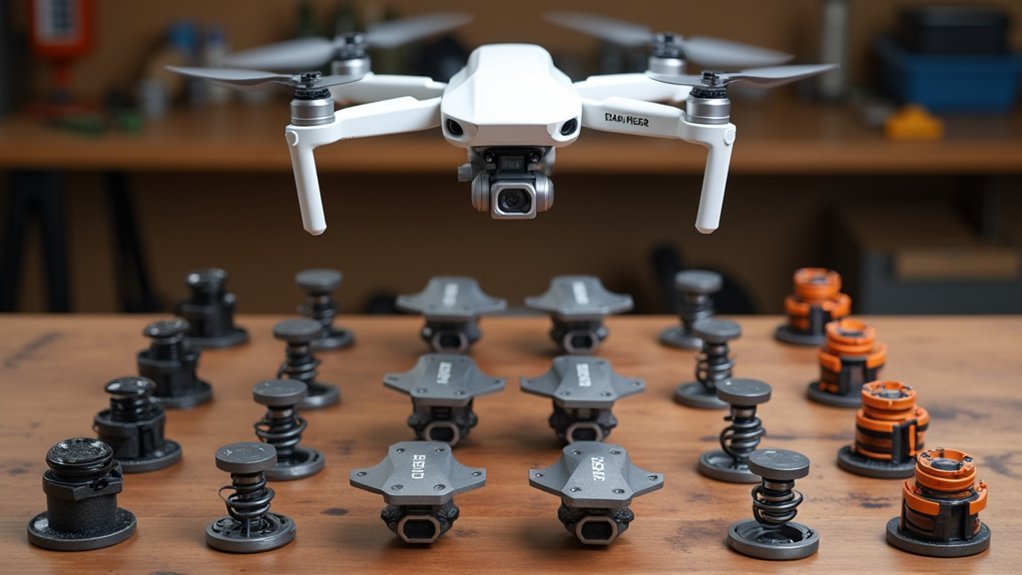
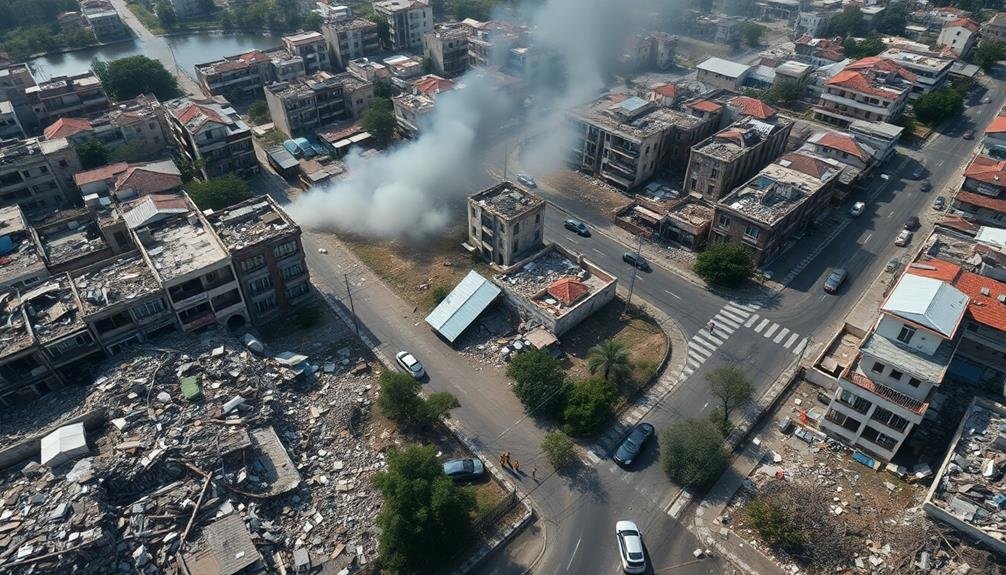
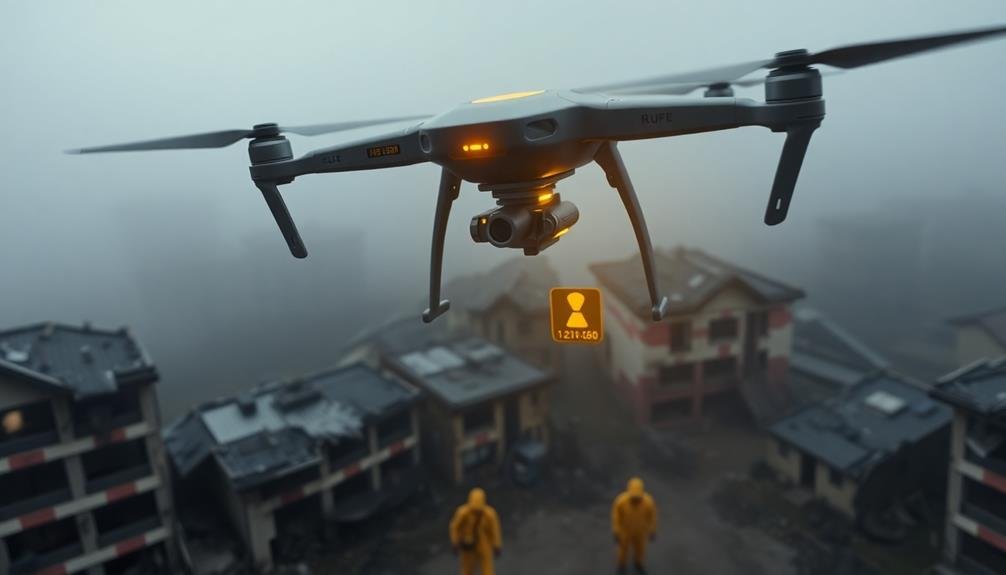
Leave a Reply